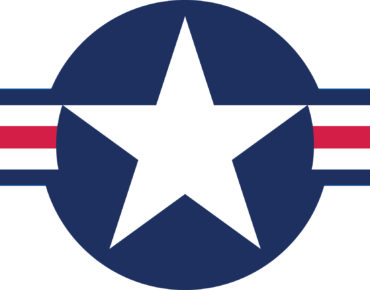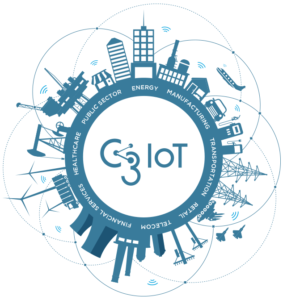DoD Picks C3 IoT’s Predictive Platform for U.S. Air Force

C3 IoT's indisputably impressive track record in IoT, comprised of major corporate implementations in the U.S. (including Con Edison) and EMEA, now extends to the Department of Defense.
The Tom Siebel-led company, founded in 2009 and reformulated two years later around IoT, has several hundred million sensors under management, which apparently is far more than any other IoT analytics vendor. Soon enough, C3 will lengthen its lead when sensors from aircraft used by the U.S. Air Force – and potentially other aircraft and equipment used by the other military branches – will be added to that total.
C3 IoT’s software enables companies to build custom IoT applications that ingest and analyze machine data pouring out of devices affixed to machinery – be they cars, industrial equipment or telephones. A major C3 claim to fame: the company says it can develop and install new IoT apps for customers in less than two months, 10X times faster and 10X cheaper than its competitors.
The Air Force predictive maintenance contract win, announced this week, may be a case in point, considering how short the sales cycle was compared with the norm for the Department of Defense contracts, never mind commercial organizations. C3 IoT President/CTO Ed Abbo told EnterpriseTech the entire process, from initial contact to contract completion was 90 days.
Neither Abbo nor DoD disclosed the other companies involved in the evaluation process, but Abbo said DoD “cast a wide net.” “You can imagine the potential list of other companies that might have been under consideration,” he said.
According to Abbo, the Air Force deal initially covers predictive maintenance for the E-3 Sentry (AWACS) and F-16 aircrafts (or “platforms,” in DoD-speak). He left the impression that if C3 IoT performs well that the company’s relationship with DoD could expand.
“There are 5,000 aircraft in the U.S. Air Force, so we can deploy to these two aircraft (the AWACS and F-16) and then scale across the Air Force, and we’re also scalable to other aircraft in the other military departments,” he said, adding that C3’s predictive maintenance concepts can be applied to ships and other military equipment.
 The company said the C3 IoT Platform will enable the DoD to aggregate and keep current enormous volumes of disparate data, including structured (e.g., sensor reports) and unstructured (e.g., maintenance logs) datasets, in a unified cloud-based data image, running on Amazon Web Services (AWS) GovCloud (US), and to employ AI and machine learning at scale and near-real time, to predict impending equipment failures. AWS GovCloud (US) is an isolated AWS region that holds Provisional Authorizations for FedRAMP High and Moderate baselines, allowing the DoD to host sensitive Controlled Unclassified Information (CUI) and all types of regulated workloads.
The company said the C3 IoT Platform will enable the DoD to aggregate and keep current enormous volumes of disparate data, including structured (e.g., sensor reports) and unstructured (e.g., maintenance logs) datasets, in a unified cloud-based data image, running on Amazon Web Services (AWS) GovCloud (US), and to employ AI and machine learning at scale and near-real time, to predict impending equipment failures. AWS GovCloud (US) is an isolated AWS region that holds Provisional Authorizations for FedRAMP High and Moderate baselines, allowing the DoD to host sensitive Controlled Unclassified Information (CUI) and all types of regulated workloads.
DoD’s vendor search was handled by its DIUx (Defense Innovation Unit Experimental) organization, which serves as a Pentagon hub to attract private-sector innovation, such as artificial intelligence, to solve large-scale technical military challenges.
Abbo said the key factors in the C3 win were that it offers AI-based product maintenance, as opposed to other vendors’s condition-based (i.e., non-predictive) methods, along with its ability to complete projects in short time frames with small development teams.
“When they saw our ability to deliver projects quickly, as we have done in (other industries)…, and our ability to also do very accurate predictive maintenance with machine learning and deep learning algorithms, and that we can scale, that was a point when the lights went on for them,” he said. “It’s also our ability to do this with small teams, not a typical services engagement with 50 to 100 people, we’re talking about five to 10 people getting it done in six months, and our platform’s ability to integrate and aggregate data continuously.”
“The combination of big data, elastic cloud computing, AI, and IoT is becoming the most significant development of the Information Age, and is driving the digital transformation of every industry – including aerospace, government services, and defense,” said Abbo. “With DIUx, the Department of Defense is demonstrating leadership in moving quickly to integrate these leading-edge technologies into the U.S. military for strategic national security.”










